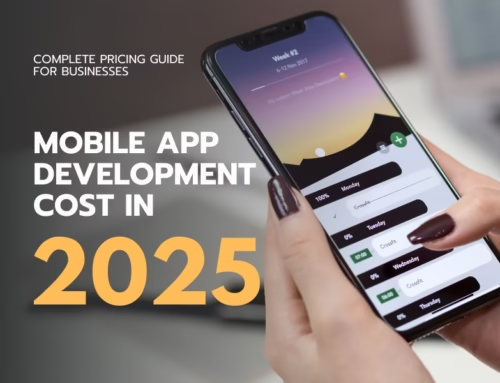Native vs Hybrid Mobile Apps: What’s Best for Your Business in 2025?
Introduction
In today’s competitive digital market, businesses are investing heavily in mobile app development to engage customers, streamline processes, and increase revenue. One of the biggest questions decision-makers face is whether to build native or hybrid mobile apps. By 2025, the stakes are even higher as customer expectations for speed, security, and seamless user experiences continue to grow.
For companies working with app developers Las Vegas, choosing the right approach—native vs hybrid—can determine not only development costs but also long-term success. This blog explores both options in depth, providing insights to help you make the best decision for your business.
Why Mobile Apps Matter in 2025
Mobile apps are no longer just a “nice-to-have.” According to industry reports, more than 90% of digital time is spent on mobile apps. Whether you’re a startup or an established enterprise, having a mobile presence is critical to remain competitive.
The decision between native and hybrid apps impacts factors like:
-
Development cost and timeline
-
User experience (UX)
-
Performance and speed
-
Access to device features (camera, GPS, push notifications, etc.)
-
Scalability for future growth
Native Mobile Apps: Deep Dive
What Are Native Apps?
Native apps are built specifically for a single platform—iOS or Android—using platform-specific programming languages and tools.
-
iOS Native Development: Swift, Objective-C
-
Android Native Development: Kotlin, Java
Benefits of Native Apps
-
Performance: Faster and more responsive since they are optimized for the platform.
-
User Experience: Designed with platform-specific UI/UX standards.
-
Device Access: Seamless integration with device hardware like GPS, camera, and sensors.
-
Scalability: Easier to scale and enhance for platform-specific needs.
Limitations
-
Higher cost (two separate apps for iOS and Android).
-
Longer development timeline.
-
Requires specialized developers.
Hybrid Mobile Apps: Deep Dive
What Are Hybrid Apps?
Hybrid apps use a single codebase for multiple platforms. They are often built with frameworks such as Flutter, React Native, or Ionic, and wrapped in a native shell for deployment across iOS and Android.
Benefits of Hybrid Apps
-
Cost-Effective: One codebase = reduced development cost.
-
Faster Time-to-Market: Quicker to build and launch.
-
Easier Maintenance: Updates made in one place apply to all platforms.
-
Growing Frameworks: Frameworks like Flutter now deliver near-native performance.
Limitations
-
Performance can be slightly lower than native apps.
-
Limited access to some device features.
-
May face challenges with complex animations or advanced integrations.
Native vs Hybrid: Key Comparison for 2025
| Feature | Native Apps | Hybrid Apps |
|---|---|---|
| Performance | High, smooth, reliable | Moderate to high (depends on framework) |
| User Experience | Excellent, platform-optimized | Good, but sometimes less consistent |
| Development Cost | Higher (separate apps) | Lower (one codebase) |
| Development Time | Longer | Faster |
| Device Feature Access | Full | Partial (depends on plugins) |
| Scalability | Strong | Moderate to strong |
| Maintenance | Requires separate updates | Easier, single update |
What Businesses in Las Vegas Should Consider
If you’re a business working with app developers Las Vegas, your decision should align with your budget, goals, and user needs.
-
Choose Native if:
-
You want top-tier performance and seamless UX.
-
Your app requires advanced features (gaming, AR, VR).
-
You’re targeting a platform-specific audience.
-
-
Choose Hybrid if:
-
You’re a startup or small business with a limited budget.
-
You need faster launch across both iOS and Android.
-
Your app has standard features and doesn’t rely on heavy device integration.
-
The Future of Mobile Apps in 2025
By 2025, hybrid frameworks like Flutter and React Native have significantly closed the performance gap with native apps. Many businesses now adopt a “hybrid-first” approach, especially when they need rapid market entry. However, for high-performance use cases—such as fintech apps, AR/VR experiences, or enterprise-grade solutions—native development still dominates.
Partnering with experienced app developers Las Vegas ensures you get tailored guidance. They can help you balance performance, cost, and scalability to build an app that drives results.
Related Services You May Find Useful
Conclusion
The native vs hybrid debate in 2025 is not about one being better than the other—it’s about what’s best for your business. While native apps provide unmatched performance and UX, hybrid apps offer cost savings and faster deployment.
For businesses in Las Vegas, the smartest step is to consult trusted app developers Las Vegas who can assess your unique requirements and recommend the best solution. Whether you choose native or hybrid, what matters most is delivering value to your customers.
Frequently Asked Questions
Hybrid apps are generally cheaper because they use one codebase for both iOS and Android, whereas native apps require separate development.
In 2025, hybrid frameworks like Flutter offer near-native performance, but for complex apps (e.g., gaming, AR), native is still superior.
It depends on your goals, budget, and required features. Consult with app developers Las Vegas to assess the right approach.
Yes. Many businesses launch with hybrid apps for cost savings and later transition to native as their user base grows.
A hybrid app can be launched in 3–6 months, while native apps may take 6–12 months depending on complexity.
Get Started Today
Your mobile app could be the next big driver of your business growth. Whether you need a consumer app, enterprise solution, or marketplace platform, API Pilot delivers results that speak for themselves.
Contact us today for a free consultation and let’s bring your app idea to life.



